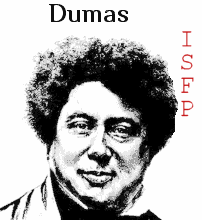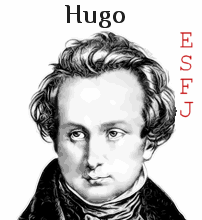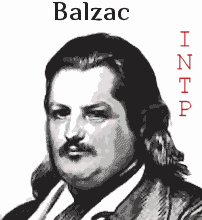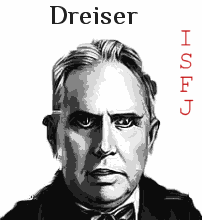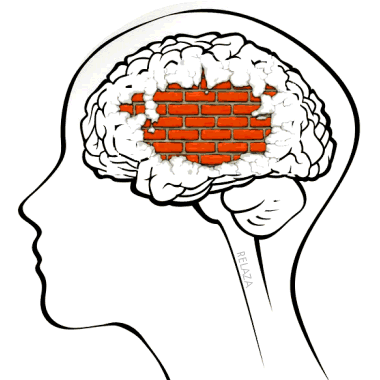
The base function in the information model of the psyche is the basis of the personality and intellect of a person, his view of life.
With the proper development of the base function, a person becomes an expert in his field, capable of building a complete picture of a small amount of information. Therefore, in order to achieve success in life, this function must be developed.
Since the base function is the basis of the psyche, a person acquires stable views on it and it is difficult for him to retrain and change habits. Even the term "dictate of the base function" is used, implying that it becomes the life credo of a person, often to the detriment of other abilities.
The information model in socionics determines which aspect fills the base function in each personality type.

Base Introverted Sensing, aka White Sensing (Si) or "Experiential Sensing"
Such people have a good sense of their own body, its condition and needs. They are calm and balanced, do not impose their interests, but actively protect them, instantly determining whether something threatens their security.
The main thing for them is comfort: coziness, comfortable clothes, delicious food. And comfort is more important than any abstract ideas.

Base Extraverted Ethics, aka Black Ethics (Fe) or "Ethics of Emotions"
The Emotive Ethics is base in
Hamlet and
Gugo. Fe is the ability to correctly express emotions and instill in people any thoughts with emotional manifestations.
Since the function is extraverted, these are emotions for show: hypocrisy, work for the public, the ability to attract and keep the attention of the audience, infect others with emotions. Hamlet and Gugo master all this masterfully, but due to the inflexiviability of the base function, they try to solve all the problems with emotional impact, and this is difficult to endure in large quantities to others. They are especially unbearable in a bad mood. In addition, both can fall into a stupor if their emotional influences cause not the result they expect.
Black ethicists are the most mobile and active representatives of humanity, among them the largest number of artists and showmen.

Base introverted logic, aka White Logic (Ti) or "Structural Logic"
The Structural Logic is base in
Robespierre and
Maximus. The
Ti is responsible for understanding formal rules and relationships. Any object is perceived as a system with its own patterns, levels.
For the sensory Maxim, the idea of order is based on his own experience and it is almost impossible to convince him of something until he feels the changes on himself: "My system is my rules."
Robespierre, as an intuitive, builds his logical constructions based on intuitive ideas about the ways of their development. It is also difficult to convince him, except that another theory of what is happening comes to his mind.

Base Extraverted Sensory, aka Black Sensing (Se) or "Volitional Sensing"
Volitional sensing is base in
Zhukov and
Napoleon. The
Se is responsible for the correct perception of objects and people and the ability to influence them. Since Volitional Sensing is an extraverted function, it is responsible in the psyche for capturing living space, and for this you need to be the first.
Zhukov, as a logician, aspires to be the leader of which everyone respects, perhaps even fears. Ethic Napoleon believes that everyone should love him because he is the best.
In addition to external expansion, emergencies are characterized by the ability to protect their own and repel any external pressure.

Base introverted intuition, aka White Intuition (Ni) or "temporal intuition"
The Temporal intuition is base in
Balzac and
Yesenin. Ni is responsible for the ability to predict trends and predict the course of events. This is imaginative abstract thinking, a sense of the dynamics of events and the choice of a suitable moment for action.
Balzac, as a logician, sees the true causes and trends in the development of the situation. Ethic Yesenin always knows the direction of public opinion, or, as they say, "where the wind blows."
The base function is fairly conservative and straightforward. If a person with a base intuition feels that something needs to be done right now, he will do it, even contrary to accepted morality or common sense. Conversely, it's hard to get them to do something that the time hasn't come for. Therefore, yesenin and Balzac's views on the world are quite fatalistic.
Base Extraverted Logic, aka Black Logic (Te) or "Practical logic"
Practical logic is base in
Stirlitz and
Jack. The Te is responsible for understanding the work of processes and mechanisms and the ability to organize any business. This is the logic of consistency - "what and in what order should be done in order to spend less effort, time and resources on it." No one better and faster than the Te will assemble furniture from the IKEA constructor kit
Everything is subordinated to the idea of expediency and benefit. To do this, the base CS build the entire chain of actions that will lead to the goal. And not only build mentally but also actively implement. They are decisive and adventurous, clearly know what to do themselves and others, can organize the process well. The best entrepreneurs are Practical logicians, especially Jackie.
It is difficult to prevent them on the way to this goal in business and interrupt in conversation. Due to the straightforwardness of the base function, it is very difficult to captivate them with an unprofitable or useless occupation from their point of view.

Base Introverted Ethics, aka White Ethics (Fi) or "Relational Ethics"
The Relational Ethics is base in
Dreiser and
Dostoevsky. The Fi is responsible for assessing people's relationships and manipulating these relationships, sympathy,
sympathy and atipaty, moral evaluation of actions.
With the help of Relational Ethics, a person understands how people treat him and how to build relationships with them.
Dreiser, who is often considered a moralist, "fights evil," and the intuitive Dostoevsky tries to "do good."

Extraverted intuition, aka Black Intuition (Ne) or "intuition of possibilities"
Intuition of possibilities is a base function in
Don Quixote and
Huxley. Ne is responsible for the ability to see the potential of any idea or person, as well as for the ability to make the right choice from equivalent options.
Don, as a logician, is more interested in the knowledge of the world as such, he is attracted to unusual theories and solutions he often offers extraordinary. Among the inventors there are a lot of Dons.
Huxley, as an ethic, is more of interest to people. He can make the right impression of a person in the first minutes of communication and decide what can be expected from this person.













